
 Which skills are most in-demand today — and how can you make this training work for you?
Which skills are most in-demand today — and how can you make this training work for you?
Among busy pastors, which areas of leadership and management training have seen the most demand in the past few years — and why?
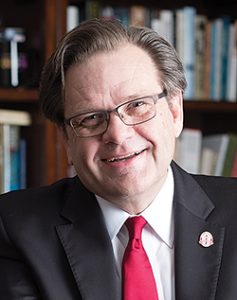
President
North Greenville University (NGU)
Gene C. Fant: First, we’ve seen increased interest in leadership in a digital media culture. Wise leaders have a strategy in place that allows for communication and awareness of the flow of information (news, prayer needs), as well as for shaping perceptions of both the leader and the church, as visitors and other persons will scan social media in advance of interaction.
Leadership in times of transition is another growing area. The pace of change has grown exponentially over the past generation, and leaders must find ways to manage how transition is anticipated and managed. Most are so focused on the present — the urgent — that it’s incredibly difficult to prepare for change. But once you’re stuck in the past, you’re incapable of responding to the unexpected.
Another area of increased interest is leadership of difficult people. The church has always had difficult people, but there are more tools available than ever before for managing mischief. One challenge of the shift from the-leader-as-pastor to the-leader-as-CEO has been the loss of the intimacy that can influence and woo difficult people. Relational ingenuity is a lost art, but it’s rooted in Scripture, and it has incredible value in a church setting.
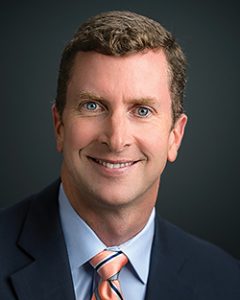
Professor of Practice in Management and Operations, Faculty Director
Center for Church Management at Villanova School of Business
Matthew F. Manion: For many years, leadership development for full-time church leaders was focused on how to lead others. This is still a priority. Two other areas where we’ve seen an increase in demand are self-leadership and organizational leadership.
Successful church leaders understand that they’re a finite resource and can’t give what they don’t have. More are looking for ways to maximize their gifts and talents by understanding when to say ‘no’ and when to let others take the lead — to learn how to make time for the Lord as a priority, so they can be more available to those they serve.
The other area where we’re seeing increased demand is helping people develop their competence in the nuts-and-bolts of leading an organization. There are basic skills in finance and budgeting, human resources, technology and vendor contracts, for example, that can be a source of stress and distraction for many church leaders because they haven’t been trained on how to handle them.
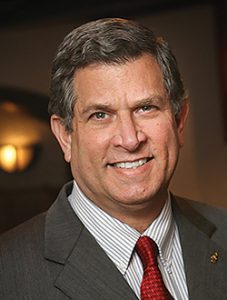
Director, Development
and Marketing
Ashland Theological Seminary
Chris Norman, CFRE: Skills which are often required, but seldom taught, are: time management, fundraising, project management, financial management, supervision, delegation and the newer skills of social media and digital communication. Many are necessary to deal ethically, morally and effectively with others (i.e., people skills). Good management of each is the oversight and provision of resources necessary to accomplish each of the related tasks. Good leadership is the engagement, encouragement, inspiration and modeling of those appropriate skills by leaders among staff, volunteers and congregations to accomplish some ‘next level’ of mission achievement. Every circumstance requires discernment to apply the correct tool in the appropriate situation rather than relying upon the same old same old.
The growing strains and complexity of our society in general, combined with the increasing demands upon our church leaders, requires use of these skills to care for God’s people.
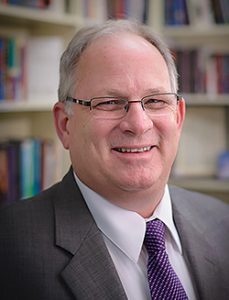
Professor of Christian Education, Occupying the John T Sisemore Chair of Christian Education
Chair, Discipleship and Ministry Leadership Division
Director, Doctor of Educational Ministry and Doctor of Education Programs
New Orleans Baptist Theological Seminary (NOBTS)
Randall L. Stone, Ph.D.: The first area where church leaders want to develop new skills is understanding the culture and language in a local church body.
In a smaller church, this involves everything from understanding the church’s reputation in the community to understanding the values of a few anchor families (long-time or legacy members). In a larger church, recognizing the history and perceived effectiveness of specific programs is important. Without understanding the deeper culture of the church, it’s hard to make plans that work.
The second needed leadership competency — strategic planning and implementation — is closely related. Too few strategies are evaluated and adapted intentionally.
A final leadership development priority is volunteer management and motivation. Effective leaders help volunteers find meaning and value in their service to and within a church. Motivating members must happen on a personal and congregational level.
The turnover rate among churches in our denomination is high; about 10 percent are undergoing a pastoral transition at any given time. As church leaders move from church to church, it’s critical to be able to read and respond to the church culture. Transferring personal programs or priorities, without adequate understanding, leads to short-term pastorates.
The second concern is that pastors and church leaders focus on proclamation / teaching and pastoral care as primary responsibilities, often based on previous experience and seminary training. However, effective leaders understand the necessity of a strategic plan beyond these. Few church leaders seem to have an innate ability to think and plan strategically. Changes in the multiplicity of congregational types, coupled with the escalation of technological and sociological changes, demand church leaders respond. Some are capable of developing appropriate strategies and plans but lack the will, personal discipline or relational skills necessary to execute. Training and coaching can help.
Finally, enlisting, training, managing and motivating volunteers and emerging leaders within congregations and ministries is increasingly challenging for church leaders. Assessing ‘commitment’ and discovering ‘potential’ leaders and servants is more difficult with population transience and generational shifts.
Are there commonalities between secular and church-based leadership and management training?
Manion: They share two key characteristics: they’re both research-based and share models, which help leaders learn, grow and develop. We’ve found that the truths in these models about how people think and act easily connect with and support the Gospel truths Jesus taught about how to lead and serve.
As one small example, there are excellent research-based models on how to resolve conflict between people or parties. The process is perfectly aligned with the model of mediation that Jesus gives us in Matthew 18.
Norman: The difference is that one follows the perfect model of Christ and is motivated by the Great Commission. Faith and spiritual discernment are often the critical differences between a solid foundation and one of shifting sand. One is always guided by wisdom and discernment toward the care of God’s people. The other might not be so inclined. Though their intentions and techniques might be identical, their objectives are not.
Secular leaders might be hampered by trends or motivations, but might also be able to properly apply the teachings of Christ in their leadership roles. Conversely, church leaders might be hampered by not following Christ and being lost in ‘latest and greatest’ fads.
Stone: The first similarity is maintaining mission focus. Leaders must guide their organizations to fulfill the primary mission and develop skills to communicate the mission regularly and clearly, using every tool available.
Likewise, organizational agility is vital for longevity. Just as other enterprises, the church must learn to respond to changing demographics, sociological shifts and philosophical pendulums that impact the mission. A church that allows mission drift can expect decline and, at some point, a rebound becomes impossible.
Personal and corporate integrity is also important. In the age of social media, leaders live with both greater scrutiny and less personal accountability. Leaders must manage themselves, as well as their technology access, to avoid temptations and abuse.
Fant: God creates, but humans discover. Secular leadership principles, where successful, are always rooted in Christian principles, because those proceed directly out of God’s created order.
I recently read a leadership book that emphasized treating employees and customers with dignity. It screamed what I recognized as Christian principles, but it refused to admit the source of its ideas. Remember to regard secular resources as one would regard the pan a goldminer uses: diligently separate the gold of truth from the gravel of half-truth. The opposite of truth isn’t necessarily a lie; it’s often a half-truth.
For full-time church leaders, time is in short supply. How does your seminary accommodate this hurdle?
Norman: We’re each gifted with all the time there is; the issue is effective and efficient stewardship of the gift. In this respect, effective time management, project management, and delegation skills are among the most valuable tools. Knowing when and how to delegate while building competencies is important. All of us know that the willingness and enthusiasm of the untrained and unprepared will actually make the work harder. Appropriate training, therefore, is the key.
At Ashland Theological Seminary, we always stress the art and practice of critical thinking in the age of information. The critical thinker will understand the strategic and tactical values of effective leadership development and will schedule time, talent and resources accordingly.
Stone: NOBTS offers a number of certificates and degrees in leadership areas, all available to distance students — master’s-level degrees and shorter graduate certificates. Also, on the doctoral level (PhD, EdD, DMA, Dmin, DEdMin), we offer options for distance students with specialized training in Christian, educational and ministry leadership. Distance students are finding that online and mentoring courses fit their schedules and lifestyles. And a growing number of our ‘traditional’ courses now allow distance students to participate live or watch later.
Fant: Everything related to leadership and training must be in the context of calling, discerned in the context of community. Godly mentors — and the church itself — should be involved in a person’s understanding of call.
Time management is also a function of community. A healthy community cultivates healthy life balance just as good mentors exhort it. It’s impossible to tame the time dragon without others’ assistance, particularly in a church. When a leader has a particular calling for advanced training, it’s incumbent on the church body to support it, even in the matter of days off, weeks away for study and writing, and so forth.
At North Greenville University, we’re keenly aware of these demands in our programs, but we also believe in the priority of community. Our low-residency programs include online elements but retain the incarnational parts of good education. Students develop significant relationships with faculty members and with one another. Good leaders are surrounded by even better leaders, and busy pastors can enter into such a community via programs that intentionally add connectedness as a part of their DNA.
Manion: The Center for Church Management at the Villanova School of Business — including our Master of Science in Church Management (MSCM) programs — has made a significant investment in online learning. As much as possible, we believe leaders should be able to learn at the times that are most convenient for them, not for us. We also use micro-learning, so busy leaders can consume the content in smaller, bite-sized pieces if they choose.
Online learning allows us to create an international community of learners who can connect in a webinar or videoconference without the time and expense associated with travel. And with a simple click on your phone, we can enter create true communities that stay connected long after class is done.
Online learning also allows the learners to go back later and revisit the content that’s most relevant for them, and perhaps even share that content with those with whom they minister so they can explore how to apply it in their local church setting.
Of course, cost is also a concern. How can leadership and management training be more affordable?
Stone: We’re fortunate to be part of the SBC, which allows our students to pay some of the lowest tuition for any graduate or doctoral education.
Additionally, we offer an array of scholarships and regularly seek to add to this list through donors and endowments. Conferences are another option. Some allow you to earn course credit. Pacing is another factor. Start with your goals, and then create a path that’s sustainable to the end.
Fant: Just as calling is a communal discernment, the financial part of advanced training should be communal. Someone who has discerned such a calling should make others aware of this and what the needs might be. I know many people who have pursued additional education supported financially by their churches, by special church members, or by other benefactors who surprised them. God has a way of connecting calling with resources — spiritually and financially.
And don’t presume that no institutional resources are available, even for graduate school. Work with admissions representatives on cost, and don’t be afraid to ask about support or other options.
Manion: First and foremost, I’d encourage church leaders to view this as an investment, not an expense. The right program and training can be a game-changer in a leader’s effectiveness, satisfaction and longevity in ministry. If you ask other successful, seasoned church leaders what programs have helped them flourish and thrive in ministry, I bet they’d include some training they received on leadership and management.
The second key to making it financially manageable is to find partners who can join you in making the investment in your leadership and management training. There are people in your church committed to your leadership, and there are foundations committed to supporting church leaders who will partner with you to provide additional financial support. Villanova University offers a 25-percent scholarship for our MSCM for anyone who works for a church — and there are other sources out there, too. I’d encourage church leaders to look for the ‘Simons’ who can help them make this happen.
Norman: First and foremost, apprise and teach your congregational leaders of the importance of leadership development. Today’s leaders should want to invest in their current leadership team and ‘build the bench’ for tomorrow. Many congregations and parachurch organizations are finding great value in the Master-Journeyman-Apprentice model of assuring that the leadership ‘pipeline’ is always filled.
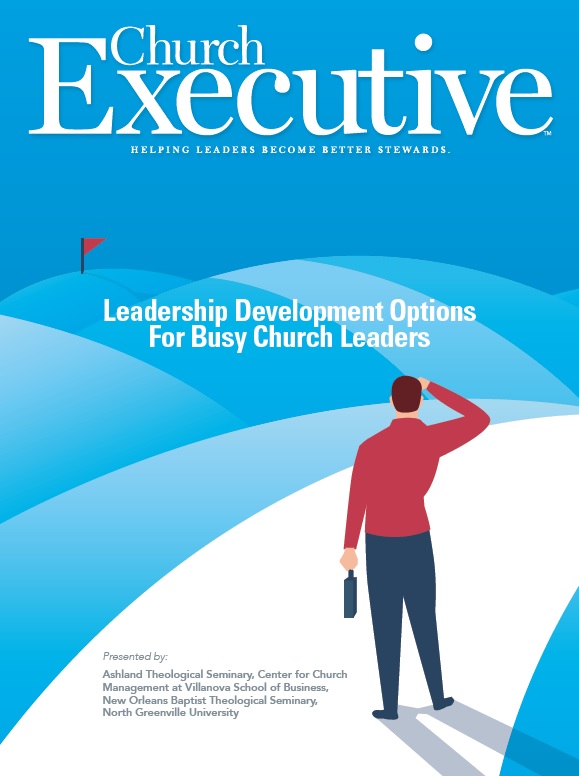
Second, understand that there are many others in the same situation. Churches, businesses and governments all share the challenge to provide cost-effective leadership development. Coalitions and cooperative efforts might be an answer, whether you have larger companies or government entities nearby or join with the local volunteer fire department, or other non-profit organizations.
Finally, leadership development is a strategic need for which you must budget and begin to fundraise. As Christ told us: ‘Ye have not, because ye ask not.’
If a full-time church leader still thinks leadership and management training is unobtainable, what would you say?
Fant: I don’t mean to be glib, but there are too many resources available — books, videos — for anyone to legitimately say that some form of advanced training is out of reach. Either it’s a priority and will be pursued, or it isn’t, and the desire to be an effective leader is secondary to something else. There’s no dishonor in starting small and building up to larger, more advanced opportunities.
Manion: Nothing is impossible with God. When churches are poorly led and managed, that distracts people and can inhibit the spread of the gospel. When churches are led and managed well, that amplifies the gospel and can bring more people to Jesus. You owe it to yourself, your people, and our Lord to find a way to make this happen, and I’m sure your church will be blessed when you do.
Norman: In the early 20th century, a hurricane formed in the Gulf of Mexico. The reports came to Galveston, Texas, of a huge storm surge headed for the island. As word spread, many residents headed down to the beach to watch the tidal wave, which was later estimated between 50 and 60 feet high. Think about that. They went to the beach to watch. A bronze plaque on the Galveston seawall tells of the resulting horrendous death and destruction. Thousands drowned, and only one building was left standing.
The demands for improved leadership in a time of great change are like that wave. One has the choice of heading to high ground (running away), going down to the beach to watch (and being swept away), or waxing up your surfboard (preparing). The wave is coming. If you don’t know what to do or how to do it, call us. Otherwise, you’ll be inundated.
Stone: Our seminary exists to equip church leaders. Many people don’t realize how much they can customize their path. Or, they don’t know about newer features, like video-enabled classes, which allow them to encounter a classroom experience, anywhere in the world.
— Reporting by RaeAnn Slaybaugh



Informative & interesting article. Would appreciate hearing more & receiving digital newsletters/magazine.
Retired but involved in men’s ministries. It seems that your material would be helpful in leadership development.